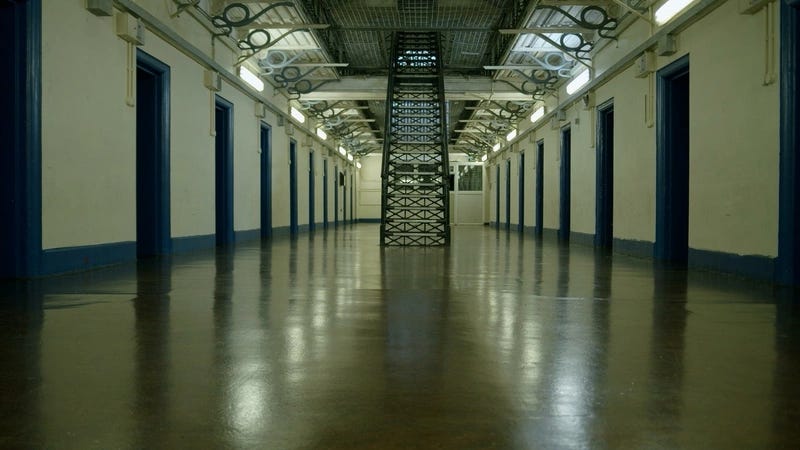Britain's Forgotten Prisoners
A new documentary tells the story of IPP prisoners - a scandalous failure of justice.
One public-sector scandal acting as background noise to the upcoming General Election is the crisis in prisons - so well explained here by Ian Acheson. As our Substack readers will know, I have been involved in raising the plight of IPP prisoners both in the Lords and the media. For a bit of background, you can read my article in the Daily Mail, the Independent’s write up of some of my speeches, plus this interview I took part in on the podcast Trapped: The IPP Prisoner Scandal.
All this means I am absolutely thrilled to be speaking at the world premiere of a brilliant new documentary - Britain’s Forgotten Prisoners - alongside its director Martin Read on Friday 14 June at 1.30pm at the Sheffield Doc Fest.
The film is also screening on Thursday 13 June at 9pm. I am also delighted that Martin has written a guest Substack for us, to explain why his film really matters. Do go along and see it if you can.
BRITAIN’S FORGOTTEN PRISONERS
SHEFFIELD DOC FEST 13 & 14 JUNE
There are over 3,000 forgotten prisoners languishing in jail in England and Wales, held indefinitely with no idea when they’ll be released, despite the fact that they completed their sentences years earlier. These are IPP prisoners – people who were given an additional indeterminate sentence: Imprisonment for Public Protection.
BACKGROUND
The IPP was introduced in 2003 by the then Labour home secretary, David Blunkett, and went into widespread use from 2005 onwards. But IPP came to be seen as an affront to human rights and was abolished by the then justice secretary, Ken Clarke, in the coalition government in 2012. After this, judges could no longer impose an IPP.
However, there are still just under 3,000 people in prison today serving an IPP sentence without a release date. Some 96 per cent of those have completed their minimum term, known as their ‘tariff’. Over 500 people have been held in prison for 10 years longer than the tariff they were given. And even when they win their release, their difficulties continue. Exceptionally, under an IPP, a prisoner is released on a lifetime licence, so that he or she can be recalled to prison by the Probation Service at any point for even minor, non-criminal breaches of the licence. For example, recall can happen for being late for a meeting with a probation officer. This can result in many months, even years, before they are subsequently released.
SYNOPSIS
Britain’s Forgotten Prisoners looks at the punishment described by Ken Clarke as ‘a stain on the justice system’. The film follows the stories of individuals trapped in a Kafkaesque world of labyrinthine bureaucracy that has seen them swallowed up by a system, and those campaigning for their rights as human beings to have their lives returned to them, trying to persuade the government to right a terrible wrong.
Filmed over six years, Britain’s Forgotten Prisoners is a moving film that follows the stories of four IPP prisoners recently released from prison after serving years over their original sentence. We also hear from prisoners trapped inside from their cells, who are among thousands held in UK jails on indefinite detention, years after completing their ‘tariff’ for often minor crimes.
DIRECTOR’S STATEMENT
‘In 2018, I encountered an IPP prisoner on the run from a recall to prison. His story about the injustices of his sentence was so horrific that I decided to document his life. This led me to discover Shirley - a working-class grandmother from Cardiff who was fighting a one-woman campaign against the IPP sentence. Shirley’s son, Shaun, was sentenced to two and a half years in prison plus an IPP for stealing a mobile phone. He has served a total of 13 years. Shirley was supporting hundreds of IPPs in and out of prison, and had gained the attention of Lord Blunkett - the former home secretary and the architect of the IPP sentence - who wanted to work with her to help end this terrible nightmare. This inspired me to shine a light on the issue.
For six years, I faced immense challenges documenting the lives of IPP prisoners, who were frequently recalled or disappeared on the run. Gaining access to prisons and building trust with over-tariff IPPs was a painstaking process which took years, and documenting IPPs living in the community was complicated further by their stringent licence conditions, mental-health struggles and substance-abuse issues. Despite these obstacles, I was driven by the profound injustice of the IPP system, which I made a pledge to expose.
Now, as the film is ready for release, I feel privileged to have undertaken this project. My hope is that it will spark public outrage and bring an end to this grave injustice. Britain’s Forgotten Prisoners is dedicated to all the IPPs and their families, highlighting their daily suffering and fight for justice’.
Martin Read: director, Britain’s Forgotten Prisoners


